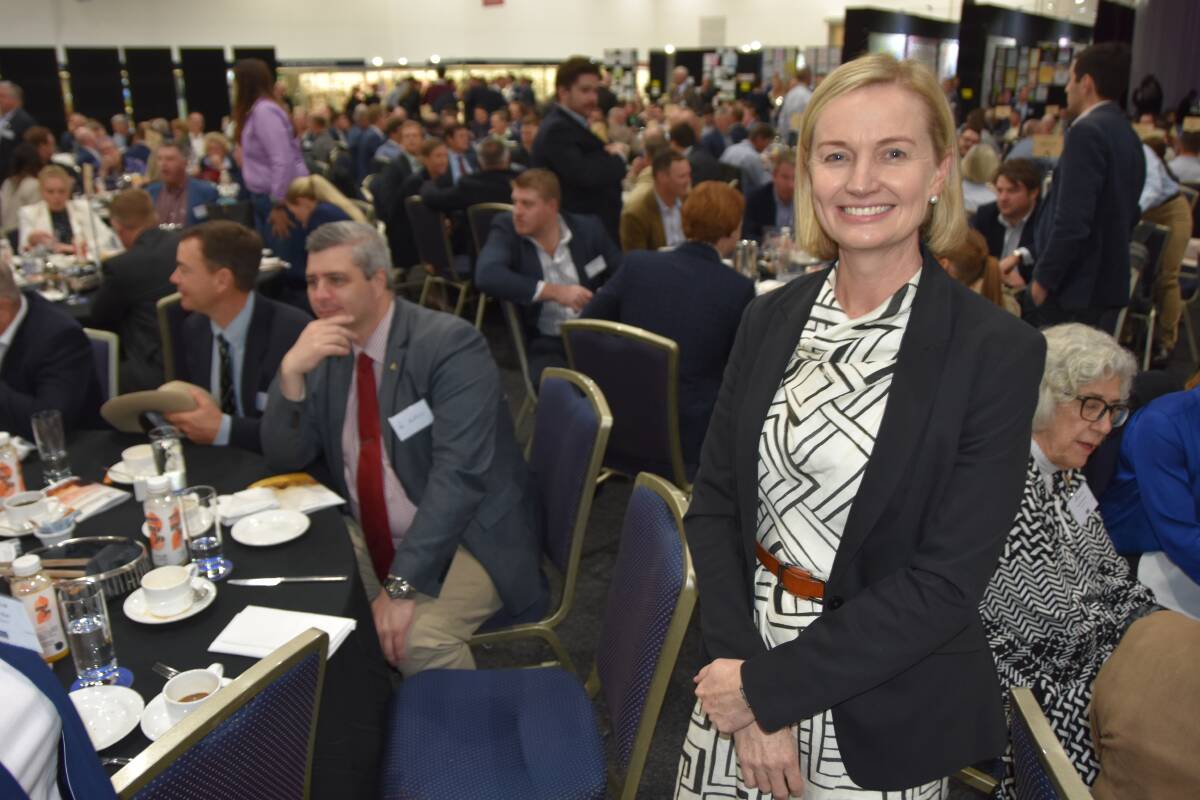
As chief financial officer of one of Australia's largest privately-owned integrated beef cattle enterprises and an executive with numerous rural organisations, Julie McDonald's contribution to the business of agriculture is extensive.
It might easily have been lost to farming though.
When she found herself at a fork in the road after the loss of her husband Zanda, considering whether to stay at MDH or take her four daughters to the city and build a new career, it was the 'gift of time and wisdom' from those in her beef producing community that was pivotal to her decision to stay on the land.
"It was but for these mentors that I didn't leave," Mrs McDonald told an audience of nearly 800 people at the Rural Press Club of Queensland's popular Ekka breakfast in Brisbane.
In presenting the annual Malcolm McCosker Memorial Address at the 2023 Royal Queensland Show, Mrs McDonald made a convincing argument, drawing from the story of her family beef operation, for the critical role that mentoring and advocacy plays in today's farming game.
"Equally as pressing as getting kids into agriculture is retaining them and feeding their curiosity," she said.
"It is when they are at their fork in the road that we have the opportunity to turn their gap year into their career.
"Every person who walks away from our sector takes with them their training, knowledge and their curiosity."
Given there were six jobs for every ag graduate last year, that represents opportunity the farming industry simply can't afford to lose.
"The sustainability of our industry depends firstly on the people it attracts, then on how they are developed," Mrs McDonald said.
"Most often this is a function of relationships and networks. That was the case for me."
MDH story
In making her case that the flow-on effect of good mentoring is good advocacy, Mrs McDonald outlined the MDH story.
Today the company spans 14 properties, around 3.36 million hectares and runs 150,000 head of cattle. The properties are all in Queensland but cover a diversity of country type and rainfall, a portfolio designed to mitigate the effects of unfavourable seasons and take advantage of the good ones.
MDH turns off cattle in both grassfed and grainfed markets and in an average year employs around 100 people.
It's also the custodian of nearly a million hectares of conservation-significant nature refuge area.
"This continual connection to the land and to agriculture is now nearly 200 years old and an excellent example of sustainability, with people at its core," Mrs McDonald said.
"This means that nearly 200 years of doing, learning, teaching, mentoring, celebrating and advocating for agriculture has been banked, and shared.
"Knowledge and wisdom has been passed onto each generation, an enormous amount of know-how passed down that has become the springboard to help advance the future of our food and fibre industries.
"Multiply this across the ag landscape as generations of other farming families are doing the same thing."
It's mentoring, without giving it that name, Mrs McDonald said.
Tomatoes and Angus cattle
Knowledge is knowing a tomato is a fruit but wisdom is not putting it in the fruit salad, Mrs McDonald said, quoting journalist Miles Kington.
Her anecdote of that: "Zanda had a desire to bring Angus genetics to Rutland Plains, at at time when there were no other Angus this far north," she said.
He sought the opinion of his father Don, who told him to go ahead but they'd probably all die.
Zanda's internal dialogue was along the lines of 'what would he know', Mrs McDonald said.
"A fair bit, as it turned out. Bring them up he did and they all died," she said.
"It's fair to say he gained wisdom as a result of that experience."
Can't be outsourced
Mrs McDonald made the case that from mentoring, flows advocacy.
Well-timed conversations that are science-based, rather than fuelled by emotion, can change the way people perceive agriculture, Mrs McDonald said.
"We are the experts in the field, and often we are looked to for information," she said.
"When this happens, we need to speak up.
"Our messages need to be clear, truthful and back by science.
"The science around methane is an incredibly important area to better understand. We need to be our own advocates. This can't be outsourced."







